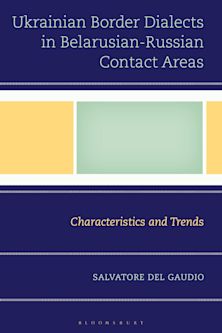- Home
- ACADEMIC
- History
- Russian History
- The State after Communism
The State after Communism
Governance in the New Russia
Timothy J. Colton (Anthology Editor) , Stephen Holmes (Anthology Editor) , Timothy J. Colton (Contributor) , Linda J. Cook (Contributor) , Gerald M. Easter (Contributor) , Timothy Frye (Contributor) , Yoshiko M. Herrera (Contributor) , Stephen Holmes (Contributor) , Pauline Jones Luong (Contributor) , Thomas F. Remington (Contributor) , Kathryn Stoner-Weiss (Contributor) , Daniel Treisman (Contributor) , Erika Weinthal (Contributor)
The State after Communism
Governance in the New Russia
Timothy J. Colton (Anthology Editor) , Stephen Holmes (Anthology Editor) , Timothy J. Colton (Contributor) , Linda J. Cook (Contributor) , Gerald M. Easter (Contributor) , Timothy Frye (Contributor) , Yoshiko M. Herrera (Contributor) , Stephen Holmes (Contributor) , Pauline Jones Luong (Contributor) , Thomas F. Remington (Contributor) , Kathryn Stoner-Weiss (Contributor) , Daniel Treisman (Contributor) , Erika Weinthal (Contributor)
This product is usually dispatched within 3 days
- Delivery and returns info
-
Free CA delivery on orders $40 or over
You must sign in to add this item to your wishlist. Please sign in or create an account
Description
The Soviet dictatorship was a strong state, committed to dominating and transforming society in the name of a utopian ideology. When the communist regime crumbled and the post-Soviet countries committed to democracy, most observers took for granted that their state structures would be effective agents of the popular will. Russia's experience demonstrates that this assumption was overly optimistic. This book, based on a major collaborative research project with American and Russian scholars, shows that state capacity, strength, and coherence were highly problematic after communism, which had major consequences for particular functions of government and for the entire process of regime change. Eleven respected contributors examine governance in post-Soviet Russia in comparative context, investigating the roots, characteristics, and consequences of the crisis as a whole and its manifestations in the specific realms of tax collection, statistics, federalism, social policy, regulation of the banks, currency exchange, energy policy, and parliamentary oversight of the bureaucracy.
Table of Contents
Chapter 2 Building Fiscal Capacity
Chapter 3 The Transformation of State Statistics
Chapter 4 Resistance to the Central State in the Periphery
Chapter 5 State Capacity and Pension Provision
Chapter 6 Governing the Banking Sector
Chapter 7 Evaluating Exchange Rate Management
Chapter 8 The Paradox of Energy Sector Reform
Chapter 9 Democratization, Separation of Powers, and State Capacity
Chapter 10 Conclusion: The State of the State in Putin's Russia
Product details
| Published | Aug 11 2006 |
|---|---|
| Format | Paperback |
| Edition | 1st |
| Extent | 334 |
| ISBN | 9780742539426 |
| Imprint | Rowman & Littlefield Publishers |
| Dimensions | 229 x 153 mm |
| Publisher | Bloomsbury Publishing |
About the contributors
Reviews
-
An interesting, challenging book. Highly recommended.
Choice Reviews
-
The State After Communism is a laudable effort to understand this pehnomenon, aiming to correct the earlier neglect and to "bring the state back in" to scholarly analyses of contemporary Russia....an insightful, useful set of studies on the emerging Russian state.
Canadian Slavonic Papers
-
This book offers a long-awaited and much-needed assessment of the current condition of the Russian state from a distinguished group of leading American scholars of Russian affairs. The volume of essays will be required reading for any serious student of Russia who wants to understand the complexities of how the country is governed today, years after the collapse of the Soviet Union, and to get a sense of the direction of the Russian state in the future.
Fiona Hill, The Brookings Institution



































